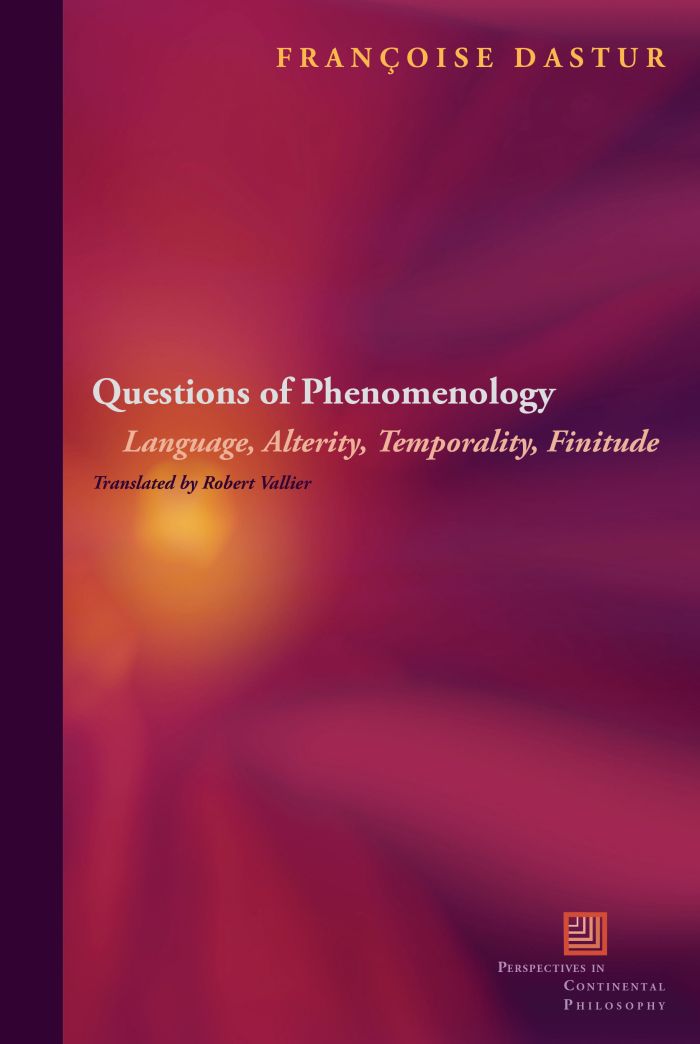Questions of Phenomenology
Language, Alterity, Temporality, Finitude

This book can be opened with

Françoise Dastur is well respected in France and Europe for her mastery of phenomenology as a movement and her clear and cogent explications of phenomenology in movement. These qualities are on display in this remarkable volume.
Dastur guides the reader through a series of phenomenological questions—language and logic, self and other, temporality and history, finitude and mortality—that also call phenomenology itself into question, testing its limits and pushing it in new directions. Like Merleau-Ponty, Dastur sees phenomenology not as a doctrine, a catalogue of concepts and catchphrases authored by a single thinker, but as a movement in which several thinkers participate, each inflecting the movement in unique ways. In this regard, Dastur is both one of the clearest guides to phenomenology and one of its ablest practitioners.
“In Questions of Phenomenology, Françoise Dastur displays remarkable erudition and originality. The erudition can be seen in the wide range of phenomenological figures that Questioning Phenomenology covers, figures such as Husserl, Heidegger and Merleau-Ponty, of course, but also Levinas, Ricœur, Gadamer, Patocka, and Fink and even lesser known figures such as Lotze, Medard Boss, and Dilthey. The originality can be seen in the unifying idea of the essays: originary finitude. Finitude is not a weakness, for Dastur, but a resource. Appropriating a phrase of Merleau-Ponty, Dastur shows that the problem of death places phenomenology at its limits. Dastur remains one of our greatest scholars of phenomenology and one of our greatest phenomenological thinkers.”——Leonard Lawlor, Pennsylvania State University
...Dastur's exploration of key phenomenological questions is fluid, nuanced and engages with, rather than avoids, the complexities that emerge from such an investigation.—Phenomenological Reviews

